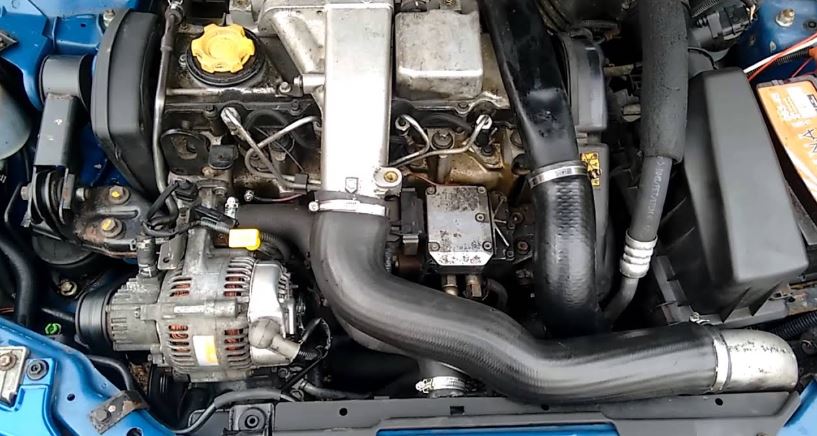Owning a car comes with the responsibility of ensuring its regular upkeep. Basic car maintenance not only extends the lifespan of your vehicle but also contributes to safer and more efficient driving. In this step-by-step guide, we will walk you through essential car maintenance tasks that you can easily perform yourself, helping you save money in the long run. Plus, we’ll explore how proper maintenance can increase the value of your car, potentially turning it into NSW top cash for cars in Sydney.
Checking and Changing the Oil
One of the most crucial aspects of car maintenance is monitoring and changing the engine oil regularly. The engine oil lubricates the engine’s moving parts, preventing wear and tear. To check and change the oil:
- Park your car on a level surface and let the engine cool.
- Locate the oil dipstick, remove it, and wipe it clean.
- Reinsert the dipstick and pull it out again to check the oil level. If it’s low, add the recommended oil.
- To change the oil, drain the old oil by removing the drain plug and replace the oil filter.
- Dispose of the used oil properly, many auto parts stores accept used oil for recycling. Regular oil changes not only ensure optimal engine performance but also contribute to fuel efficiency, saving you money at the pump.
Inspecting and Rotating Tires:
Proper tire maintenance is essential for both safety and cost savings. Regularly inspect and rotate your tires to ensure even wear and extend their lifespan. Here’s how:
- Use a tire pressure gauge to check and maintain the recommended tire pressure.
- Inspect tires for signs of uneven wear, bulges, or cuts.
- Rotate tires according to your vehicle’s recommended rotation pattern.
- Align your wheels if you notice uneven tire wear, which can improve fuel efficiency and prevent the need for premature tire replacements. Keeping your tires in good condition not only enhances safety but also contributes to better fuel economy, ultimately saving you money on replacement costs.
Brake System Maintenance:
Your car’s brake system is vital for your safety on the road. Regular maintenance can prevent costly repairs and ensure efficient braking. Follow these steps:
- Inspect brake pads and rotors for wear. Replace pads if they are less than 1/8 inch thick.
- Check brake fluid levels and top off if necessary.
- Bleed the brake system to remove air bubbles and maintain optimal brake performance. Regular brake system maintenance not only ensures safety but can also prevent more expensive repairs in the future.
Changing the Air Filter:
A clean air filter is crucial for your engine’s performance and fuel efficiency. Replace the air filter at regular intervals:
- Locate the air filter housing, usually found under the hood.
- Remove the old air filter and clean the housing.
- Insert the new air filter, ensuring it fits snugly.
- Consider upgrading to a high-performance air filter for improved engine efficiency. A clean air filter allows for better air intake, promoting efficient combustion and potentially improving gas mileage.
Inspecting and Topping Up Fluids:
Your car relies on various fluids for optimal performance. Regularly check and top up the following fluids:
- Transmission fluid
- Brake fluid
- Power steering fluid
- Coolant/antifreeze Proper fluid levels contribute to the smooth operation of your vehicle’s systems, preventing damage and the need for costly repairs.
Battery Care: Ensuring Reliable Starts
Your car’s battery is a critical component, and proper care can prevent unexpected breakdowns. Follow these steps:
- Regularly check battery terminals for corrosion. Clean with a mixture of baking soda and water.
- Test the battery voltage using a multimeter. Replace the battery if voltage is consistently low.
- Ensure that the battery is securely fastened in its tray to prevent vibrations that could damage it.
- If your car is not in use for an extended period, consider using a trickle charger to maintain the battery’s charge.
Taking care of your car’s battery not only ensures reliable starts but also saves you from the hassle and cost of unexpected replacements.
Headlight and Taillight Maintenance: Visibility and Safety
Properly functioning headlights and taillights are crucial for visibility on the road. Here’s how to maintain them:
- Regularly inspect headlights and taillights for burnt-out bulbs. Replace them promptly.
- Clean cloudy or foggy headlights with a headlight restoration kit.
- Ensure that all exterior lights are working correctly, including turn signals and brake lights.
- Adjust the aim of headlights if necessary to improve visibility and prevent blinding oncoming drivers.
Maintaining your car’s lights not only enhances safety but also avoids potential fines for non-functioning lights.
Cabin Air Filter Replacement: Breathing Fresh Air Inside Your Car
The cabin air filter ensures that the air inside your car is clean and free of pollutants. Follow these steps to replace it:
- Locate the cabin air filter, often found behind the glove compartment or under the dashboard.
- Remove the old cabin air filter and clean the filter housing.
- Install a new cabin air filter, making sure it is positioned correctly.
- Consider replacing the cabin air filter every 12,000 to 15,000 miles, or more frequently in areas with high levels of pollution.
Changing the cabin air filter improves air quality inside your car and helps maintain the efficiency of the heating and air conditioning systems.
Spark Plug Maintenance: Igniting Efficiency
Spark plugs play a crucial role in the combustion process. Regular maintenance ensures optimal engine performance:
- Check spark plugs for signs of wear, such as blackened or eroded tips.
- Use a spark plug gap tool to ensure the gap is within the manufacturer’s specifications.
- Replace spark plugs at the recommended intervals, typically every 30,000 to 100,000 miles, depending on the type of plugs used.
- Consider upgrading to high-performance spark plugs for improved combustion and fuel efficiency.
Properly functioning spark plugs contribute to fuel efficiency, smooth engine operation, and can prevent issues like misfires.
Conclusion:
By following these step-by-step guides on basic car maintenance, you not only ensure the longevity and performance of your vehicle but also save money on potential repair costs. Regular maintenance contributes to fuel efficiency, prevents unnecessary wear and tear, and enhances overall safety on the road.
Additionally, keeping your car in good condition can increase its resale value. When the time comes to upgrade or part ways with your current vehicle, you can leverage its well-maintained status to earn cash for cars wreckers sydney. Potential buyers are often willing to pay a premium for a car with a documented history of regular maintenance and care.






